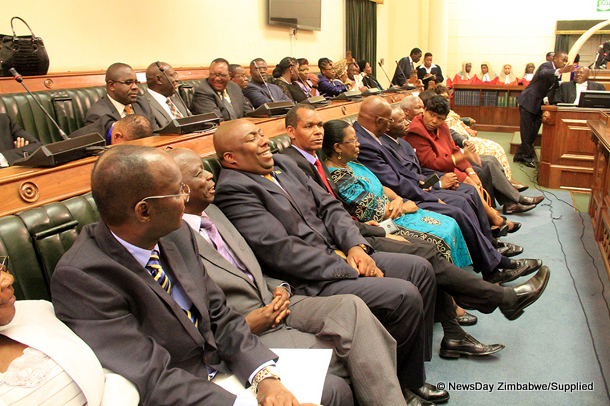
The Gender Commission Bill is currently being debated in the National Assembly. The Bill was gazetted on July 25 2014, thereby allowing stakeholders enough time to debate the draft legislation and influence changes.
There is a real danger, however, that Parliament will pass the Bill without any amendments, thereby dealing a severe blow to the full realisation of gender equity and equality in Zimbabwe.
The Gender Commission Bill seeks to provide a legal framework for the operations of the Commission by affirming the constitutional provisions, elaborating on the mandate of the Commission, providing for the secretariat and funding of the Commission and elaborating on the relationship between the Commission and other arms of the state, particularly the Executive and Parliament.
The Zimbabwe Gender Commission is one of the five independent commissions listed by the Constitution as supporting democracy.
It therefore has an important role to play in ensuring that democracy, in which the voices of all groups in society find full expression, is entrenched in Zimbabwe.
The specific functions of the Commission are outlined in Section 246 of the Constitution.
I am particularly interested in four functions that I believe are substantive enough.
They include investigating possible violations of rights relating to gender; receiving and considering complaints from the public and to take such action in regard to the complaints as it considers appropriate; to recommend prosecution for criminal violations of rights relating to gender; and to secure appropriate redress where rights relating to gender have been violated.
- Chamisa under fire over US$120K donation
- Mavhunga puts DeMbare into Chibuku quarterfinals
- Pension funds bet on Cabora Bassa oilfields
- Councils defy govt fire tender directive
Keep Reading
The Zimbabwe Gender Commission can only effectively execute these functions if it is truly an independent body. Section 235 of the Constitution clarifies what this independence means.
It says the independent commissions are not subject to the direction and control of anyone, and that they must exercise their functions without fear or favour. Section 235 is categorical that “no person may interfere with the functioning of the independent commissions”.
The question therefore is does the Gender Commission Bill guarantee this independence? Civil society organisations and gender activists have already welcomed the Bill but expressed reservations on certain clauses, in particular those relating to the independence of the Gender Commission.
The Paris Principles on National Institutions for the Promotion and Protection of Human Rights of 1993 provide that in order for a national human rights body to be effective, it must be independent from the government and that this independence must be guaranteed by the Constitution and enabling legislation. While the independence of the Gender Commission from the Government is guaranteed by the Constitution as highlighted above, the Bill is silent on the subject of independence of the Commission.
The normative framework of the Bill would have been strengthened by specifically restating the constitutional principles of independence from government.
Certain aspects of the role of the Minister as provided for in the Bill are in violation of the principle of independence from government. Section 16 provides that the minister may give policy directions to the Commission relating to the exercise by it of its functions as may appear to the minister to be requisite in the national interest and that the Commission shall, with due expedition, comply with such directions.
This provision is a direct affront to the principle of independence of the Commission, and is unconstitutional in my view.
While the noble intentions behind this provision are clear (to safeguard the national interest), the power to issue policy directives opens the door for abuse and undue influence. The Bill should rather provide room for the minister to engage with the Commission on matters of national interest.
The Paris Principles provide that in order to guarantee its independence from government, the Commission should have an infrastructure which is suited to the smooth conduct of its activities.
In addition to adequate funding, the Commission should be able to employ its own competent staff and have its own premises.
The provison to section 2 of the Bill provides that the minister, with the approval of the Public Service Commission, may assign persons employed in his or her ministry to act as the chief executive officer of the Commission. This action may be taken without resort to the Commission itself. This is problematic in that it poses a threat to the independence of the Commission.
This power appears wholly unnecessary and unwarranted. It is submitted that as long as the Commission exists, it should be able to employ its own chief executive like any other institution. In conclusion, it would be a serious violation of the Constitution for Parliament to pass the Bill in its present form.
The clauses that relate to independence need to be revisited to ensure no one (including the minister) may interfere with its functions as provided for under section 235 (3) of the Constitution.
John Makamure is the Executive Director of the Southern African Parliamentary Support Trust. Feedback: [email protected]











